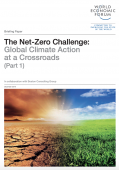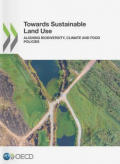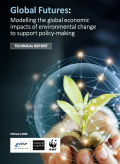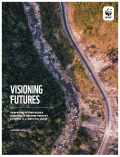The EU Environmental Reporting Handbook evaluates company disclosure in line with the Non-Financial Reporting Directive

The paper is the first in a two-part series on The Net-Zero Challenge, which examines what corporations, governments, and civil society have achieved since the Paris Agreement was drafted in 2015 and assesses the current state of global climate action. While there are clear signs of incremental progress, climate action needs to move at a much greater scale and faster pace.

This report examines on-going challenges for aligning land-use policy with biodiversity, climate, and food objectives and the opportunities to enhance the sustainability of land-use systems. It looks at six countries with relatively large agricultural and forestry sectors and associated greenhouse gas emissions, many of which also host globally important biodiversity.

This study, which calculates the economic cost of nature’s decline across 140 countries, shows that the loss of six ecosystem services under a business-as-usual trajectory leads to losses of US$9.87 trillion in real GDP by 2050. This represents an annual loss of US$479 billion per year. In contrast, under a scenario in which land-use is carefully managed to avoid further loss of areas important for biodiversity and ecosystem services, economic outcomes would be dramatically better, with global GDP rising by $490 billion per year above the business-as-usual calculation.
Visioning Futures: Improving infrastructure planning to harness nature’s benefits in a warming world

This report outlines a new planning approach integrating considerations of natural capital and ecosystem services, climate risks and resilience, and sustainable development needs to support social-ecological system scale planning. It provides key recommendations for global and local institutions influential in infrastructure development, from multilateral development banks and other funders to NGOs and the private sector, to address these gaps and facilitate an improved planning approach.
